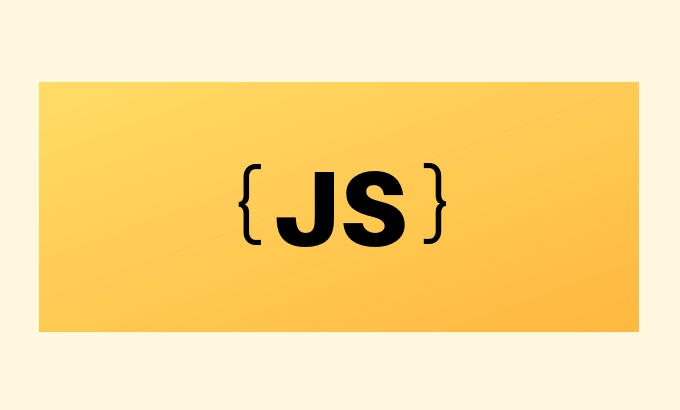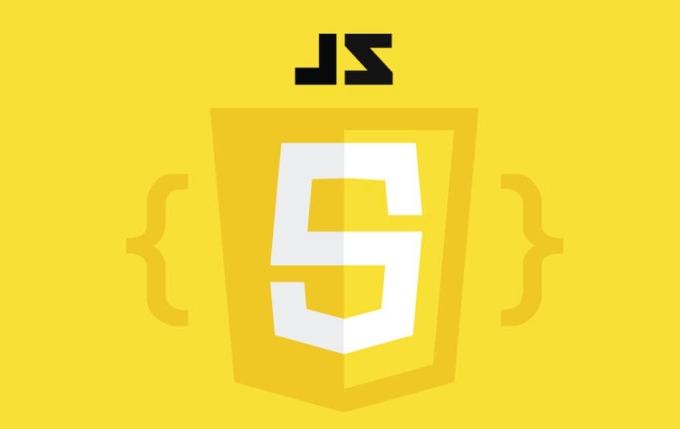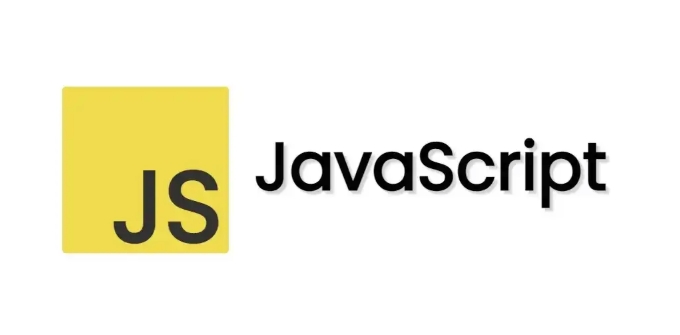終極JS綜述是在開玩笑開始進行單位測試的開始
安装Jest并配置测试脚本,2. 编写简单专注的测试用例覆盖正常、边界和无效输入,3. 合理使用mock和spy隔离依赖并保持最小化,4. 利用Jest的watch模式和过滤功能提升开发效率。首先通过npm安装Jest并配置package.json中的test脚本,同时根据需要集成Babel支持现代JS语法;接着从验证基本功能开始编写单元测试,每个测试只聚焦一个行为,并涵盖典型输入、边界条件及异常情况;在处理外部依赖时,使用jest.fn()控制返回值或验证调用,使用jest.mock()隔离模块,必要时通过jest.spyOn()监控函数调用行为,同时注意清理mock并避免过度使用;最后通过npm test运行所有测试,结合--watch参数实现自动重跑,使用test.only()或-t标志快速定位特定测试以优化工作流。

So you're diving into unit testing with Jest and want to get started the right way — no fluff, just solid tips and practices that actually help. Unit testing in JavaScript using Jest can be straightforward once you understand a few key patterns and tools.

Here are some practical things to focus on when starting out.

Set up your test environment properly
Jest works out of the box with minimal configuration, but getting your setup right from the start will save headaches later.
Start by installing Jest via npm or yarn:
npm install --save-dev jest
Then, make sure your package.json has the test script pointing to Jest:

"scripts": {
"test": "jest"
}Also, consider setting up Babel if you're using modern JavaScript features. Create a babel.config.js file so Jest can transpile your code during tests.
One often-overlooked detail is where to place your test files. By default, Jest looks for files ending in .test.js or .spec.js, usually placed alongside the source files they test. Keeping this structure consistent helps you (and others) quickly find what's being tested.
Write simple, focused tests first
When you're new to unit testing, it’s easy to overcomplicate things. Start with basic function tests — like checking if a function returns the correct value given specific inputs.
For example, say you have a utility function that adds two numbers:
function add(a, b) {
return a + b;
}Your test could look like this:
test('adds two numbers correctly', () => {
expect(add(2, 3)).toBe(5);
});This keeps things simple and gives you immediate feedback. Focus on one behavior per test. Don't try to cover multiple scenarios in a single test case unless it's clearly about the same logic path.
Also, don’t skip edge cases. Try passing in negative numbers, strings, or undefined values to see how your function behaves. This builds confidence in your code’s reliability.
A few common test cases to cover early:
- Normal input
- Edge or boundary conditions
- Invalid or unexpected input
Use mocks and spies wisely
Mocking functions is powerful in Jest, especially when dealing with external dependencies like APIs or database calls. But it's also easy to misuse.
Use jest.fn() when you need to track whether a function was called, or to replace its return value. For example:
const mockFunction = jest.fn(); mockFunction.mockReturnValue(10); expect(mockFunction()).toBe(10); expect(mockFunction).toHaveBeenCalled();
If you’re mocking modules or dependencies, use jest.mock() at the top of your test file. But avoid over-mocking — only mock what’s necessary to isolate the unit under test.
Spies (jest.spyOn()) are handy when you want to observe real function calls without altering their behavior entirely. They’re great for checking if a method gets called inside another function.
Just remember:
- Keep mocks readable and minimal
- Clean them up after each test with
jest.clearAllMocks()if needed - Avoid deeply nested mocks unless absolutely necessary
Run tests and watch for changes
Once you’ve written a few tests, running them is as simple as:
npm test
But Jest offers more than one-off runs. Add the --watch flag to re-run tests automatically when files change:
npm test -- --watch
This is super useful during development because it gives instant feedback as you write or modify code.
You can also filter which tests run by using test.only() for a specific case, or name patterns with -t in the CLI:
npm test -- -t "adds two numbers"
These small tricks make your workflow faster and more responsive.
That’s basically it. Jest is pretty approachable once you get past the initial setup and learn to write clean, focused tests. Just keep practicing, and don’t be afraid to dig into Jest’s docs for more advanced use cases later on.
以上是終極JS綜述是在開玩笑開始進行單位測試的開始的詳細內容。更多資訊請關注PHP中文網其他相關文章!

熱AI工具

Undress AI Tool
免費脫衣圖片

Undresser.AI Undress
人工智慧驅動的應用程序,用於創建逼真的裸體照片

AI Clothes Remover
用於從照片中去除衣服的線上人工智慧工具。

Clothoff.io
AI脫衣器

Video Face Swap
使用我們完全免費的人工智慧換臉工具,輕鬆在任何影片中換臉!

熱門文章

熱工具

記事本++7.3.1
好用且免費的程式碼編輯器

SublimeText3漢化版
中文版,非常好用

禪工作室 13.0.1
強大的PHP整合開發環境

Dreamweaver CS6
視覺化網頁開發工具

SublimeText3 Mac版
神級程式碼編輯軟體(SublimeText3)
 高級JavaScript範圍和上下文
Jul 24, 2025 am 12:42 AM
高級JavaScript範圍和上下文
Jul 24, 2025 am 12:42 AM
JavaScript的作用域決定變量可訪問範圍,分為全局、函數和塊級作用域;上下文決定this的指向,依賴函數調用方式。 1.作用域包括全局作用域(任何地方可訪問)、函數作用域(僅函數內有效)、塊級作用域(let和const在{}內有效)。 2.執行上下文包含變量對象、作用域鍊和this的值,this在普通函數指向全局或undefined,在方法調用指向調用對象,在構造函數指向新對象,也可用call/apply/bind顯式指定。 3.閉包是指函數訪問並記住外部作用域變量,常用於封裝和緩存,但可能引發
 如何在JavaScript中獲取輸入字段的值
Jul 15, 2025 am 03:09 AM
如何在JavaScript中獲取輸入字段的值
Jul 15, 2025 am 03:09 AM
要獲取HTML輸入框的值,核心是通過DOM操作找到對應元素並讀取value屬性。 1.使用document.getElementById是最直接方式,給input添加id後通過該方法獲取元素並讀取value;2.使用querySelector更靈活,可根據name、class、type等屬性選取元素;3.可添加input或change事件監聽器實現交互功能,如實時獲取輸入內容;4.注意腳本執行時機、拼寫錯誤及null判斷,確保元素存在後再訪問value。
 如何使用JS獲取所選廣播按鈕的值?
Jul 18, 2025 am 04:17 AM
如何使用JS獲取所選廣播按鈕的值?
Jul 18, 2025 am 04:17 AM
獲取選中的單選按鈕值的核心方法有兩種。 1.使用querySelector直接獲取選中項,通過input[name="your-radio-name"]:checked選擇器獲取選中的元素並讀取其value屬性,適合現代瀏覽器且代碼簡潔;2.使用document.getElementsByName遍歷查找,通過循環NodeList找到第一個checked的radio並獲取其值,適合兼容舊瀏覽器或需要手動控制流程的場景;此外需注意name屬性拼寫、處理未選中情況以及動態加載內容時
 使用JavaScript構建安全的沙盒iframe
Jul 16, 2025 am 02:33 AM
使用JavaScript構建安全的沙盒iframe
Jul 16, 2025 am 02:33 AM
要使用JavaScript建立一個安全的沙盒iframe,首先利用HTML的sandbox屬性限制iframe行為,例如禁止腳本執行、彈窗和表單提交;其次通過添加特定token如allow-scripts來按需放寬權限;接著結合postMessage()實現安全的跨域通信,同時嚴格驗證消息來源和數據;最後避免常見配置錯誤,如未驗證源、未設置CSP等,並在上線前進行安全性測試。
 VUE 3組成API與選項API:詳細比較
Jul 25, 2025 am 03:46 AM
VUE 3組成API與選項API:詳細比較
Jul 25, 2025 am 03:46 AM
Vue3中CompositionAPI更适合复杂逻辑和类型推导,OptionsAPI适合简单场景和初学者;1.OptionsAPI按data、methods等选项组织代码,结构清晰但复杂组件易碎片化;2.CompositionAPI用setup集中相关逻辑,利于维护和复用;3.CompositionAPI通过composable函数实现无冲突、可参数化的逻辑复用,优于mixin;4.CompositionAPI对TypeScript支持更好,类型推导更精准;5.两者性能和打包体积无显著差异;6.
 使用JavaScript中的日期對象與日期和時間一起工作
Jul 14, 2025 am 03:02 AM
使用JavaScript中的日期對象與日期和時間一起工作
Jul 14, 2025 am 03:02 AM
JavaScript的Date對象使用需注意以下關鍵點:1.創建實例可用newDate()獲取當前時間,或通過字符串、年月日參數指定時間,推薦ISO格式以確保兼容性;2.使用getFullYear()、getMonth()等方法獲取日期時間,並手動拼接格式化字符串;3.用getUTC系列方法處理UTC時間,避免本地時區干擾;4.通過時間戳差值計算時間間隔,但需注意跨時區或夏令時可能導致的偏差。
 掌握JavaScript並發模式:網絡工人與Java線程
Jul 25, 2025 am 04:31 AM
掌握JavaScript並發模式:網絡工人與Java線程
Jul 25, 2025 am 04:31 AM
JavaScript的WebWorkers和JavaThreads在並發處理上有本質區別。 1.JavaScript採用單線程模型,WebWorkers是瀏覽器提供的獨立線程,適合執行不阻塞UI的耗時任務,但不能操作DOM;2.Java從語言層面支持真正的多線程,通過Thread類創建,適用於復雜並發邏輯和服務器端處理;3.WebWorkers使用postMessage()與主線程通信,安全隔離性強;Java線程可共享內存,需注意同步問題;4.WebWorkers更適合前端並行計算,如圖像處理,而
 用於復雜JavaScript應用的高級調試技術,利用Java調試原理
Jul 17, 2025 am 01:42 AM
用於復雜JavaScript應用的高級調試技術,利用Java調試原理
Jul 17, 2025 am 01:42 AM
調試JavaScript複雜應用需系統化使用工具。 1.設斷點及條件斷點攔截可疑流程,如函數入口、循環、異步回調前並按條件過濾;2.啟用Blackboxing功能屏蔽第三方庫干擾;3.結合環境判斷使用debugger語句控制調試入口;4.通過CallStack追溯調用鏈路,分析執行路徑與變量狀態,從而高效定位問題根源。







